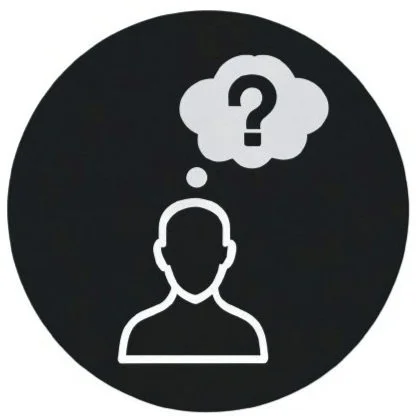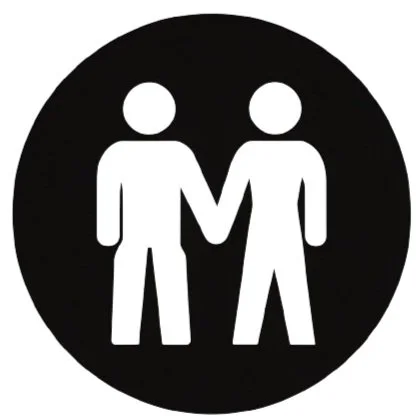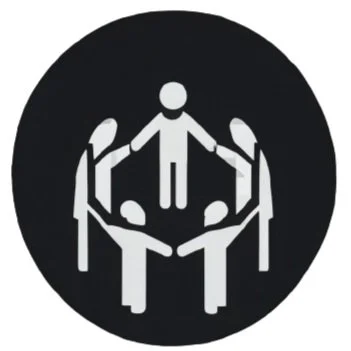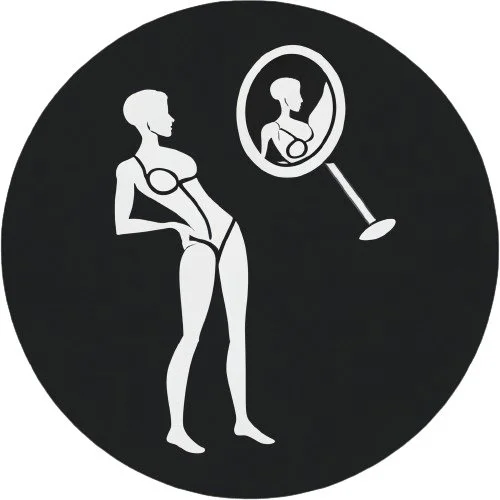About Me
Ashley Merriman, LCSW (she/her)
California # 122951 — Virginia # 0904017120
I am a Licensed Clinical Social Worker with a Master of Social Work degree from New York University and a Bachelor of Arts degree in Psychology from the University of California, Berkeley. I have over 15 years of experience in mental health and support services, working directly with individuals and families from diverse backgrounds.
My intersecting identities as a queer, black, bi-racial, disabled cis-woman in a larger body inform how I show up in the clinical space. I invite clients to bring their full selves into our work in order to show up authentically and without shame. As an inclusive and affirming clinician, I partner with clients to identify strengths and address barriers to achieving their goals and develop a path towards healing and overall wellness. I use an empowerment-based holistic approach that is informed by a variety of psychological theories and modalities, including Attachment, Cognitive Behavioral, Somatic, Psychodynamic, and Humanistic therapies.
I have extensive experience working with people who have dealt with trauma, depression, and anxiety. I work with individuals and couples of every gender expression and sexual orientation. I am passionate about social justice and incorporate an anti-oppression, body liberation, and PIC (Prison Industrial Complex) abolitionist lens into my work, particularly in supporting Black, Indigenous, and people of color (BIPOC) and bi-racial/ multi-racial folks with issues of identity, racial & sexual trauma, eating disorders, veganism & eco-anxiety, and interpersonal struggles. I also utilize my in-depth knowledge of the film and TV industry to support entertainment industry workers, artists, and creatives who’ve struggled with misconduct, discrimination, and/or harassment or are just trying to find their place in a high stress industry.
My practice is poly, kink, neurodiversity, and LGBTQIA+ affirming.
“A healer is not someone that you go to for healing. A healer is someone that triggers within you, your own ability to heal yourself.”
Specialties & Areas of Focus
Trauma
I can help with:
Racial Trauma/ coping with racism/ internalized racism
Sexual Trauma
Pressure to be a “Strong Black Woman”
Perfectionism
Numbness or Dissociation
Post Traumatic Stress Disorder (PTSD)
Harassment, misconduct, and/or discrimination due to your racial, gender, or sexual identity
Interpersonal Struggles
I can help with:
Conflicts with friends or family members
Struggles with vulnerability and opening up to those closest to you
Isolation & loneliness
Financial struggles with your partner or family
Communication difficulties with your partner
Alternative/ Non-traditional Relationship Models
I can help with:
Kink & BDSM
Ethical Non-Monogamy (ENM)/ Consensual Non-Monogamy (CNM)
Polyamory & Open Relationships
Maintaining a positive relationship after a breakup, separation, or divorce
Navigating money issues in non-traditional relationships
Entertainment Industry Workers
I can help with:
“Me Too” experiences or harassment, misconduct, and/or discrimination at work
Artistic burnout
Writer’s Block
Questioning your career path
Rejection sensitivity and self confidence
Financial security while being a freelancer or gig worker
Eating Disorders & Body Image
I can help with:
Anorexia
Bulimia
Binge Eating Disorder
Complicated relationships with food
Body Dysmorphia & dissatisfaction with body
Internalized diet culture and fatphobia
Veganism & Eco-anxiety
I can help with:
Existential Dread
Starting or maintaining an ethical veganism lifestyle
Compassion Fatigue
Activism Burnout
Feelings of overwhelm
Veganism impacting your relationships with others
I have training in the following therapy methods and I may use them with you, depending on your needs and presenting issues:
-
Acceptance and Commitment Therapy (ACT) is a form of psychotherapy that combines mindfulness and behavioral change strategies to increase psychological flexibility and help individuals live in alignment with their values. It emphasizes accepting difficult emotions and thoughts rather than avoiding them, promoting committed actions that lead to a meaningful life.
-
Cognitive Behavioral Therapy (CBT) is a type of psychotherapy that focuses on identifying and changing negative thought patterns and behaviors to improve emotional regulation and develop personal coping strategies. It is widely used to treat a variety of mental health issues, including depression, anxiety disorders, and phobias.
-
Cognitive Processing Therapy (CPT) is a specific type of cognitive-behavioral therapy designed to help individuals process and overcome trauma-related thoughts and feelings. It focuses on challenging and modifying unhelpful beliefs related to the trauma, with the goal of reducing the symptoms of Post-Traumatic Stress Disorder (PTSD) and improving overall functioning.
-
Emotionally Focused Therapy (EFT) is a form of psychotherapy that focuses on helping individuals and couples improve their emotional connection and relationship bonds. It is based on the premise that emotional experiences are key to understanding and improving relationships, and it works to create secure attachment patterns through identifying, expressing, and processing emotions.
-
Exposure and Response Prevention (ERP) Therapy is a type of cognitive-behavioral therapy specifically designed to treat obsessive-compulsive disorder (OCD). It involves exposing individuals to situations or thoughts that trigger their obsessions and then helping them prevent the compulsive behaviors typically performed in response, with the goal of reducing anxiety and breaking the cycle of obsession and compulsion.
-
The Gottman Method is a form of couples therapy which focuses on strengthening relationships through research-based interventions and exercises. It aims to improve communication, increase intimacy, and address conflict constructively by building a foundation of trust and commitment.
-
Health at Every Size (HAES) is a movement and approach that promotes the idea that people of all body sizes can achieve health and well-being through healthy behaviors rather than focusing on weight loss. It emphasizes body acceptance, intuitive eating, and physical activity for pleasure and health rather than for the sole purpose of weight control.
-
Internal Family Systems (IFS) Therapy is a form of psychotherapy that views the mind as naturally composed of multiple sub-personalities or "parts," each with its own perspective and qualities. The therapy aims to help individuals achieve internal harmony by understanding and integrating these parts, led by the core Self, which is considered the true, compassionate, and healing essence of an individual.
-
Narrative Therapy is a form of psychotherapy that helps individuals identify and reshape the stories they tell about their lives. It focuses on separating the person from their problems and encourages the exploration of alternative, empowering narratives.
-
Psychodynamic therapy is an approach to psychotherapy that explores how unconscious thoughts and past experiences influence current behaviors, emotions, and relationships. It typically involves examining patterns in the client's thoughts, feelings, and beliefs, with the goal of increasing self-awareness and understanding the roots of emotional difficulties.
-
Relational Therapy, also known as Relational-Cultural Therapy (RCT), focuses on the importance of relationships in shaping our psychological well-being. It emphasizes the therapeutic relationship as a collaborative and transformative process where healing occurs through mutual empathy, authenticity, and understanding. This approach highlights how relational dynamics, including cultural and societal influences, impact an individual's sense of self and emotional growth.
-
Schema Therapy is a therapeutic approach that integrates elements of cognitive-behavioral therapy (CBT), attachment theory, and psychodynamic principles. It focuses on identifying and addressing maladaptive schemas, which are enduring patterns of thought and behavior that contribute to emotional distress and interpersonal difficulties. Schema Therapy aims to help individuals understand and change these deep-seated patterns by combining cognitive, emotional, and behavioral techniques, ultimately promoting healthier ways of thinking, feeling, and relating to others.
-
Sex Therapy is a specialized form of therapy focused on addressing sexual concerns and dysfunctions in individuals or couples, aiming to improve sexual function, satisfaction, and intimacy through education, exploration, and specific techniques.
-
Somatic Therapy is an approach to psychotherapy that emphasizes the connection between the mind and body in healing. It focuses on bodily sensations, movements, and experiences to address emotional and psychological issues. Somatic therapists help clients explore and release physical tension and trauma stored in the body, promoting integration and healing.







